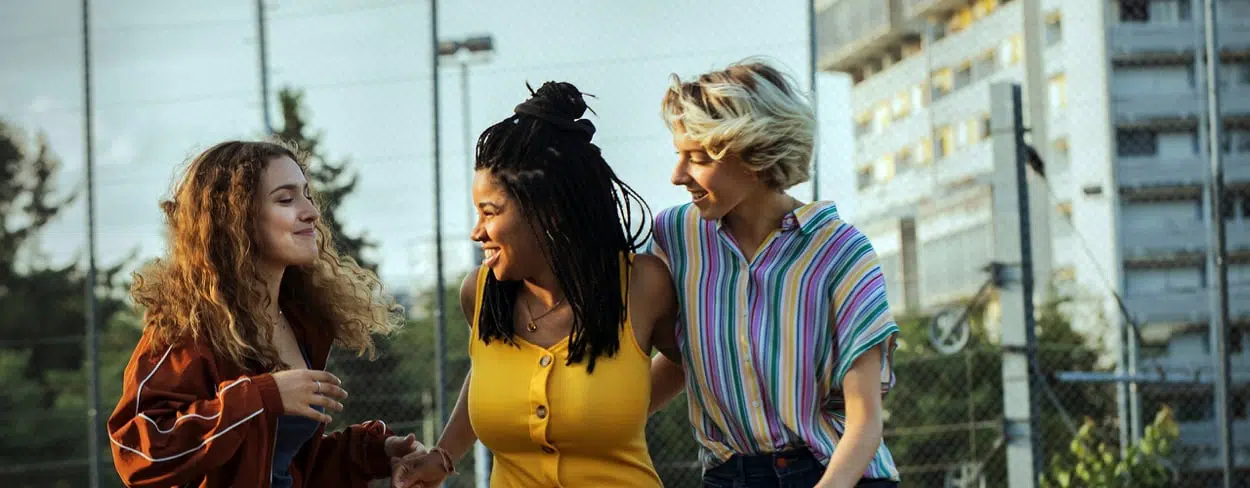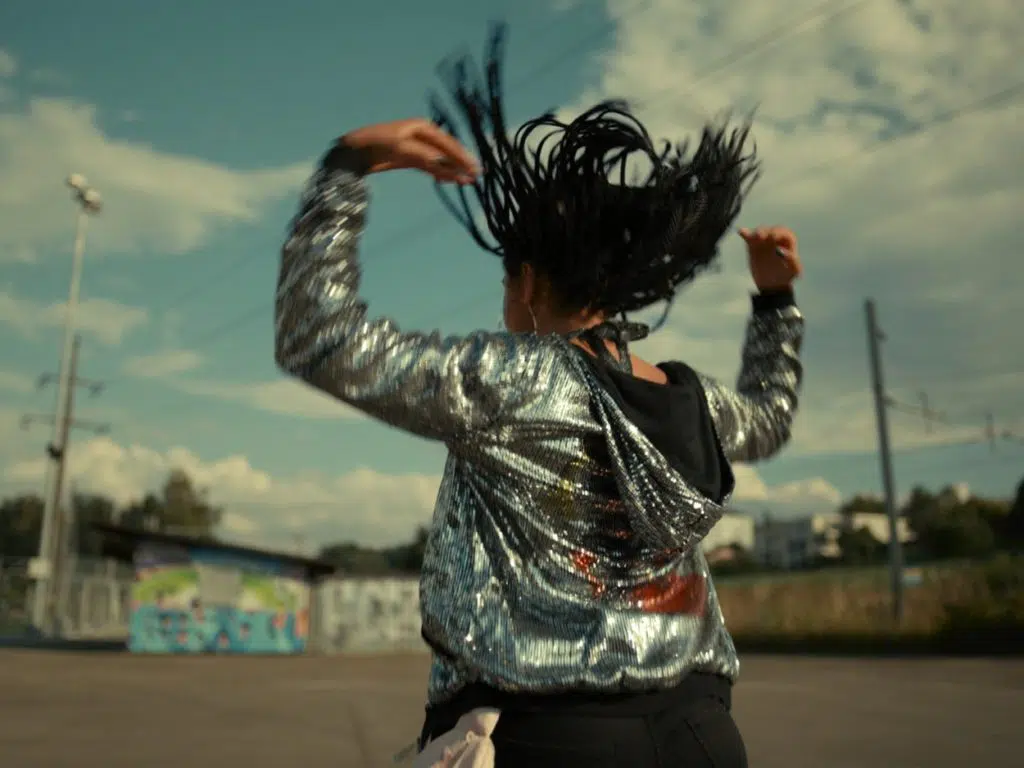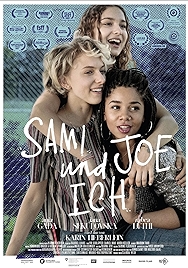At the Raindance film festival, London, UK, 27 October–6 November 2021
Swerving the woe-is-me of the issue-driven drama, Sami, Joe and I (Sami, Joe und Ich) takes on the sort of problems teenage girls encounter without becoming a hostage to them and also celebrates the vital force of female friendships without becoming sappy. Quite a feat.
We’re in Switzerland, with three 16-year-old girls, all the offspring of migrants, as the summer holidays arrive and the wider world beckons. They’re a fiercely cliquey threesome, high on youth, hyperventilating with optimism, a band of sisters of Three Musketeers camaraderie and feistiness.
Writer/director Karin Heberlein doesn’t overdo the “offspring of migrants” bit, but it’s there – Sami (Anja Gada) has Bosnian ancestry, Joe’s (Rabea Lüthi) roots are something hispanic, South American maybe, while Leyla (the I of the title, played by Jana Sekulovska) is from a murky “somewhere in Eastern Europe” – specifics are not gone into because, like I say, Heberlein is aiming for a light touch.
Instead she follows the three as they make their tentative first forays into the adult world, taking skivvy jobs in the case of Leyla and Joe, exploring the possibility of helping in refugee camps in Sami’s, though Sami’s father is a tartar of the old school who’s keen to keep her on a short leash, and certainly away from boys like Nadi (Karim Daoud), a friend of Sami’s peevish snitch of a brother, Denis (Karim Darwiche).
Following the Withnail & I rule that the “I” doesn’t get much of a look-in, Leyla doesn’t feature very much in this story – we have little idea what her family life is like, or her personal aspirations – she’s a useful explicatory foil, a confessor figure. Instead much of the drama focuses on Sami’s attempts to get out from under her strict father, and Joe’s interactions with her lone-parent mum and the McJob she’s taken rather than pursue further education.
Heberlein was a stage actor before becoming a director and like a lot of people who’ve made that leap, she’s produced an actor’s film, one centred on the performance rather than the technical and she does get the most remarkably fresh, loose acting out of a uniformly excellent cast, especially the three young stars.
There is an arc from the bright and cheerful, the collaborative and communicative, to the darker and more forbidding, and insularly individualistic, as the young women – as they’re becoming as we watch – hit the sort of bumps in the road that could be loosely described as “the shit all women have to put up with”. And yet it doesn’t feel like a social worker’s report or a cliché. There’s a documentary-like aspect to this film that really adds to its power and allows the story of these three girls to unfurl as if it’s all just happening in front of the camera, without artifice. Not bad for a feature debut.
Broad parallels could be made with Céline Sciamma’s Girlhood, and though Switzerland isn’t the banlieues of Paris, the sheer propulsive bounce that Sciamma gave to Girlhood can also be felt here, starting with the performances and the agile cinematography of DP Gabriel Lobos and bolstered enormously by a rhythmic and generally upbeat soundtrack by Dominique Dreier and Kilian Spinnler (aka Stereotyp).
“Always hold more dreams in your soul than reality can destroy” is the film’s message. It’s one of the first lines of dialogue as it gets underway and one of the last as things play out at the end. And it sums up both the philosophy of the three optimistic, resilient young women and of Heberlein herself, who has carefully and skilfully negotiated a path through a story that could easily have been played on the black notes only.
© Steve Morrissey 2021


